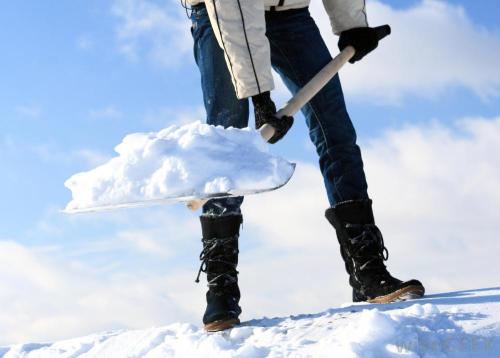Having warned you about the dangers of snow shoveling yesterday, I thought it worthwhile to share this with you from Harvard.
Hospital admissions for cardiovascular diseases decline on days with major snowfalls compared to days with no snowfall, but they jump by 23% two days later, according to a new study led by researchers from Harvard T.H. Chan School of Public Health.
“With global climate change, major snowstorms may become more frequent and severe,” said lead author Jennifer Bobb of the Group Health Research Institute in Seattle, who worked on the study as a postdoctoral researcher in the Department of Biostatistics at Harvard Chan School. “Understanding trends in hospitalizations related to snowfall will help us develop ways to protect public health during harsh winter conditions.”

The study was published online January 30, 2017 in the American Journal of Epidemiology.
The researchers analyzed data for 433,037 adults hospitalized at the four largest hospitals in Boston (Beth Israel Deaconess Medical Center, Brigham and Women’s Hospital, Boston Medical Center, and Massachusetts General Hospital) during the months of November through April, for the years 2010–2015. They focused on admissions for cardiovascular diseases; cold-weather related conditions such as frostbite; and falls and injuries.
“This was a complex data science endeavor that required coordination and linkage of electronic medical records across hospitals,” said senior author Francesca Dominici, professor of biostatistics and senior associate dean for research at Harvard Chan School.
Other findings included:
Cold-weather-related disease admissions increased by 3.7% on high snowfall days (greater than 10 inches of snow), compared to days with no snowfall.
Cardiovascular disease admissions were higher on days of moderate (5 to 10 inches), rather than high, snowfall.
Admissions for falls increased 18% on average during the six days following a moderate snowfall, compared to days with no snowfall.
Health hazards posed by snowfalls may have previously been unrecognized, according to the researchers. A possible explanation could be that people who are most susceptible to cardiovascular events and falls stay indoors during heavy snowfalls and avoid potential hazards, say the researchers.
They write that the two-day delayed jump in admissions for cardiovascular events after heavy snowfalls could reflect delays getting to the hospital during snow emergencies.
The mechanisms by which snowstorms lead to adverse cardiovascular events that are not fully understood, noted the authors. Snow shoveling may be one such factor. This possibility derives from prior studies of “snow-shoveler’s infarction,” which found that heavy snow shoveling resulted in cardiorespiratory demands that were comparable to or higher than the demands of maximal treadmill testing.








That opening was priceless. The good doctor HAD to be from Seattle. Climate change? More snow?! Did someone call Michael Mann so he can bring his hockey stick out to play? Oh, and I wonder what the computer models have to say about all of this extra snow. Ten years ago that opening would have been blasphemy.
LikeLiked by 1 person
Are you alluding to the ‘climate change’ as opposed to global warming? I am old enough to remember the global cooling scare of the 1970’s. “The arrival of another ice age has long been a chilling theme of science fiction. If the earth’s recent history is any clue, says Marine Geologist Cesare Emiliani of the University of Miami, a new ice age could become a reality…” From Time Nov 1972 (http://content.time.com/time/magazine/article/0,9171,910467,00.html)
LikeLiked by 1 person
Yes sir, I am. I am old enough that I can remember my teachers freaking out about the next ice age.
LikeLiked by 1 person
Don’t know if you get/read the Wall Street Journal, but today’s opinion page has some good facts on global warming reporting during Obama’s years. Somehow the margin of error got lost and every year made a new record high.
LikeLiked by 1 person
Yes, I’ve enjoyed Global Warming day, when they come out to let us know that the year is a new record, usually between November and the middle of December.
Then they have a report that comes out in April that in which they retract the previous record to little fanfare.
LikeLiked by 1 person
It’s always within the margin of error. So, not a new record.
LikeLiked by 1 person
I forgot to add, in my haste yesterday, that I do believe that global war… err, climate change (TM) is a real thing and that there is a possibility we contribute to it. This brings me into the concensus thinking, in line with the vast majority of scientists. What I DON’T believe, is that global warming is a BAD thing. It most certainly is not. Politicians using scare tactics against beneficial things is just as real as the weather, or another name for climate change.
LikeLiked by 1 person
This is a great article, Tony. People base cardiac disease on SYMPTOMS. The additional cardiovascular stress caused by shoveling combined with the cold unfiltered air inspired placing additional stress on the lungs places the deconditioned individual at great risk. This article is worth paying attention to!
LikeLiked by 1 person
Thanks, Jonathan! Much appreciated.
LikeLike